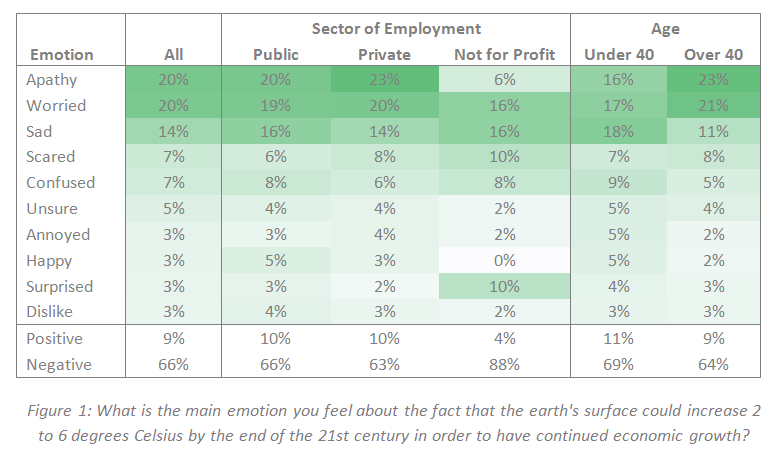Emotalizer: Climate Change
Posted: 19/06/2017

“How can we claim back Climate Change from the deniers?”

The President of the United States, one of the largest emitters of carbon, has claimed “the concept of global warming was created by and for the Chinese in order to make U.S. manufacturing non-competitive”. Despite being warned of the dangers of climate change by the Pope himself, Donald Trump has pulled the U.S. out of the Paris Climate Agreement, an agreement signed by over 200 countries with the aim of tacking the issues associated with climate change. With climate change denial reaching main stream politics, we wanted to see how the British public felt about the topic through our Emotalizer approach.
Scientists are trying to convey hard facts about climate change – global surface temperatures of the last decade reached the highest levels since records began; global sea levels have risen by 20cm due to melting ice sheets1 – and the need for immediate action. However the gravity of this evidence doesn’t seem to reach the general public, perhaps due to the intangible nature of the problem, the long timescale or simply because they don’t want to make the changes required. We found 20% of the British public to be apathetic to the problem, which is high relative to 13% apathy towards doping in sports and 11% apathy towards the Brexit vote before it took place.
We did find that the majority of the British public (66%) feel negatively about climate change even if it is required to have continued economic growth, compared to 77% who felt negatively about the prospect of Trump himself being elected and 24% who felt negatively about Clinton becoming President. The most frequently cited emotions regarding climate change were Worry and Sadness. The difficulty that scientists face in activating the general public can be seen through the high proportions of respondents feeling Confused or Unsure, potentially due to the complex nature of the evidence and also the opposing views being given attention.
As shown in the table above, when we looked at the emotional reaction of those who work in different sectors we saw little difference in the emotions cited by private and public sector employees. Those who work in the Not for Profit sector, however, show significantly lower levels of apathy, indicating a stronger engagement with the topic, but also higher levels of Surprise. Overall they cite a much higher proportion of negative emotions at 88%.
The younger generations also show a stronger emotional response to the topic, with those under 40 showing less apathy than those over 40. This different level of engagement can also be seen in gender splits which show 17% apathy amongst women but 24% amongst men. These sections of society with higher engagement should be targeted with simple information on the actions they can take. Millennials may be considered precious snowflakes, but the future of the ice caps might be in their hands.
1https://www.theccc.org.uk/tackling-climate-change/the-science-of-climate-change/